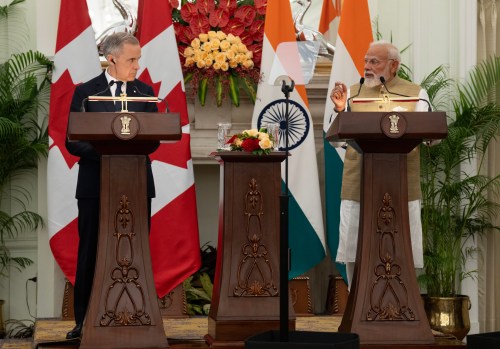Opinion
How did Carney become the darling of the global anti‑Trump movement?
5 minute read Yesterday at 10:22 PM CSTCanadian Prime Minister Mark Carney is having a moment.
While every leader in the world has to grapple with the abrupt and arbitrary decision-making of United States President Donald Trump, few have had to do so with such high stakes as America’s neighbour and ostensible ally to the north.
With more than two-thirds of Canadian exports bound for the U.S., bilateral trade is a matter of economic life and death for Canada. Since his return to office in January 2025, Trump has made repeated references to Canada becoming America’s “51st state” in an effort to put economic and political pressure on its northern neighbour.
Despite this, Carney has met the challenge with rare candour.
Advertisement
Weather
Brandon MB
-10°C, Cloudy with wind
An opportunity for Canadian energy
4 minute read Preview Yesterday at 9:16 PM CSTTaking a closer look at the Artemis shakeup
5 minute read Preview Yesterday at 12:00 AM CSTCanada trading with the world as it is
4 minute read Preview Updated: Yesterday at 8:54 AM CSTCanada, India hit reset button on their relationship
5 minute read Preview Monday, Mar. 2, 2026Why don’t we legalize, regulate and stigmatize drug use?
4 minute read Preview Sunday, Mar. 1, 2026A plan for war, but none for peace
4 minute read Preview Monday, Mar. 2, 2026Total lunar eclipse of the heart
4 minute read Preview Sunday, Mar. 1, 2026Brandon gas turbine project the wrong choice
4 minute read Preview Sunday, Mar. 1, 2026A timely push for more women on city council
5 minute read Preview Friday, Feb. 27, 2026LOAD MORE










